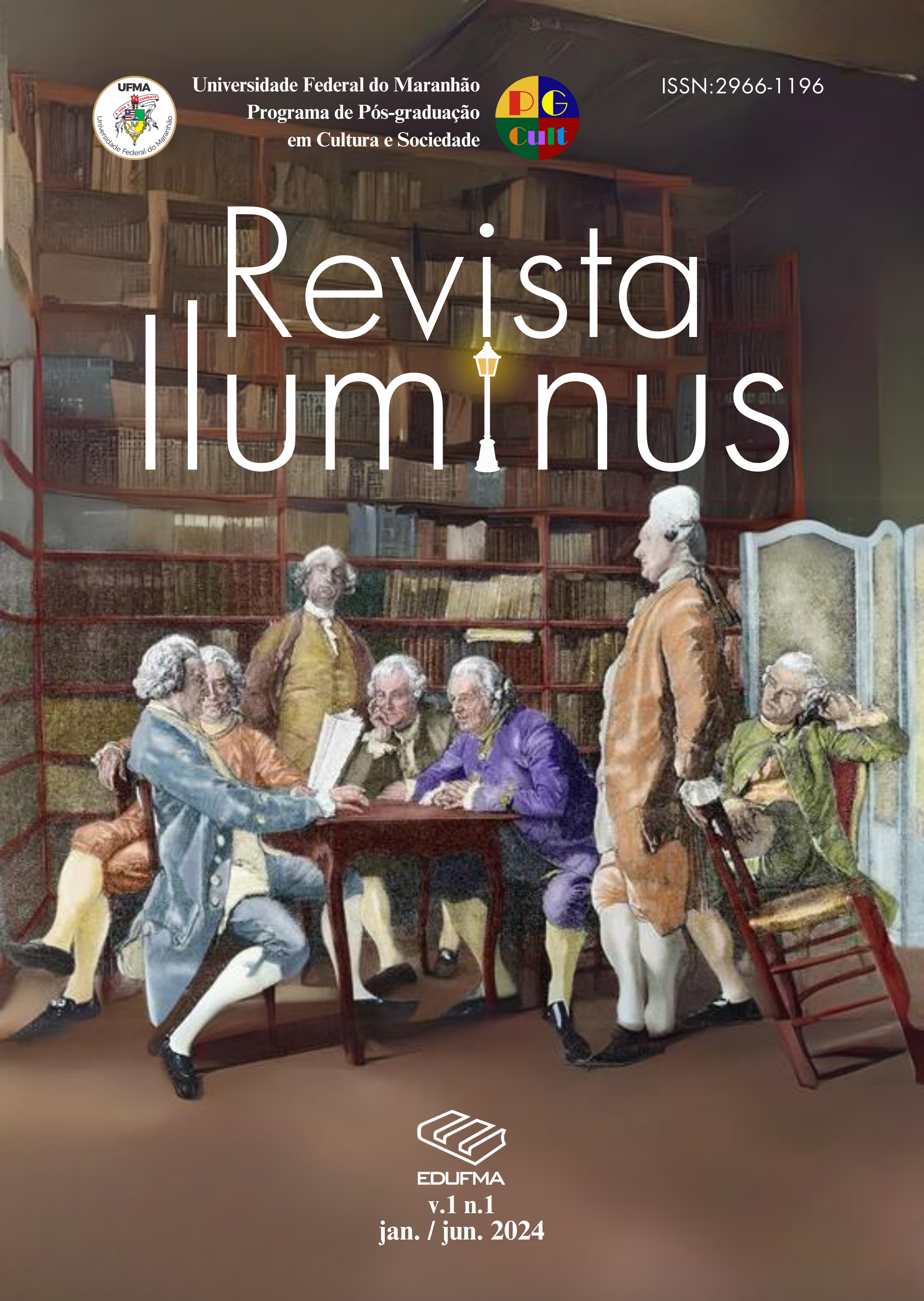A interação entre Filosofia e Literatura no Século XVIII: o caso de Jean-Jacques Rousseau
DOI:
https://doi.org/10.18764/2966-1196v1n1.2024.20%20Palavras-chave:
Rousseau, Filosofia, Interdisciplinaridade, Literatura, RomanceResumo
Este artigo investiga a interação entre Filosofia e Literatura durante o século XVIII, destacando o papel de Jean-Jacques Rousseau nesse contexto. No período iluminista, a relação entre pensamento filosófico e expressão literária apresentou nuances complexas, refletindo debates e transformações sociais e culturais significativas. Inicialmente, discute-se a ambiguidade da relação entre Filosofia e Literatura no Iluminismo, destacando a ausência de fronteiras precisas entre esses campos. Enquanto alguns filósofos se aventuravam em diferentes gêneros literários, como o romance, outros viam na literatura umapotencial ameaça à moralidade e à razão. Jean-Jacques Rousseau emerge como figura central nesse cenário, destacando-se por suas críticas contundentes à sociedade de sua época e à estrutura social propagada pelo Iluminismo. Embora tenha feito duras críticas ao romance, Rousseau paradoxalmente acabou por escrever um, desafiando suas próprias convicções e contribuindo para a revolução literária do período. Rousseau, por meio de suas obras e reflexões sobre a natureza humana, a sociedade e a educação, influenciou indiretamente o surgimento e a consolidação do romance como um gênero literário legítimo e expressivo. Seus escritos autobiográficos e sua obra epistolar, como Júlia ou A Nova Heloísa, revelam sua ênfase na sensibilidade e na natureza como fundamentos essenciais para uma vida moral e equilibrada. Por meio de uma revisão de literatura, este artigo traça um breve percurso desde as críticas de Rousseau aos seus contemporâneos até a escrita de seu romance epistolar, destacando sua contribuição para a interação entre Filosofia e Literatura no século XVIII e seu impacto duradouro no pensamento e na cultura ocidental.
Downloads
Referências
CASSIRER, Ernest. A questão Jean-Jacques Rousseau. Tradução de Erlon José Paschoal e Jézio Gutierre. São Paulo: Editora UNESP, 1999.
CASSIRER, Ernest. A filosofia do Iluminismo. Tradução de Álvaro Cabral. São Paulo: Editora UNICAMP, 1992.
FAÇANHA, Luciano da Silva. Poética e Estética em Rousseau: corrupção do gosto, degeneração e mimesis das paixões. 2010. 530 fls. Tese (Doutorado em Filosofia) – Programa de Pós-Graduação em Filosofia, Pontifícia Universidade Católica de São Paulo, São Paulo, 2010. Disponível em: https://tede2.pucsp.br/handle/handle/11842. Acesso em: 6 jun. 2024.
MATOS, Franklin de. A cadeia secreta. São Paulo: Cosac Naify, 2004.
MATOS, Franklin de. O filosofo e o Comediante: ensaio sobre literatura e filosofia na Ilustração. Belo Horizonte: Editora UFMG, 2001.
NUNES, Benedito. No tempo do niilismo e outros ensaios. São Paulo: Editora Ática, 1993.
PRADO JÚNIOR, Bento. Filosofia e Belas Artes no século XVIII (Prefácio). In: MATOS, Franklin de. O filosofo e o Comediante: ensaio sobre literatura e filosofia na Ilustração. Belo Horizonte: Editora UFMG, 2001.
PRADO JÚNIOR, Bento. Romance, moral e política no Século das Luzes: o caso de Rousseau. Discurso, São Paulo, n.17, 1988.
ROUSSEAU, Jean-Jacques. As confissões. Tradução de Wilson Lousada. Rio de Janeiro: Nova Fronteira, 2018.
ROUSSEAU, Jean-Jacques. Discurso sobre as ciências e as artes. Tradução de Lourdes Santos Machado. São Paulo: Nova Cultural, Col. “Os Pensadores”, 1999.
ROUSSEAU, Jean-Jacques. Prefácio da Nova Heloisa ou Conversa sobre os romances entre o editor e um homem de letras. In: ______. Júlia ou A Nova Heloísa. Tradução de Fúlvia M. L. Moretto. Campinas – SP: HUCITEC. 1994.
ROUSSEAU, Jean-Jacques. Prefácio de Narciso ou o amante de si mesmo. In: Discurso sobre as ciências e as artes. Tradução de Lourdes Santos Machado. São Paulo: Nova Cultural, Col. “Os Pensadores”, 1999.
Downloads
Publicado
Como Citar
Edição
Seção
Licença
Copyright (c) 2024 Leonice da Conceição Pinheiro Silva, Luis Carlos Serra Amorim Filho, Flávio Luiz de Castro Freitas, Zilmara de Jesus Viana de Carvalho

Este trabalho está licenciado sob uma licença Creative Commons Attribution 4.0 International License.
A Revista Iluminus está licenciada com uma Licença Creative Commons Atribuição 4.0 Internacional. Os autores da Revista Iluminus mantêm os direitos autorais.













